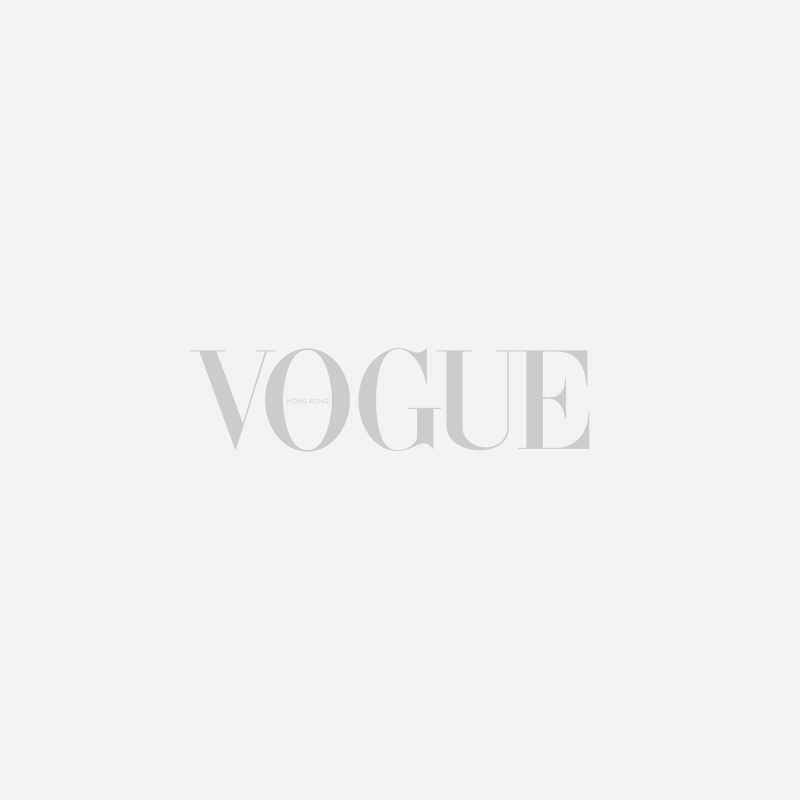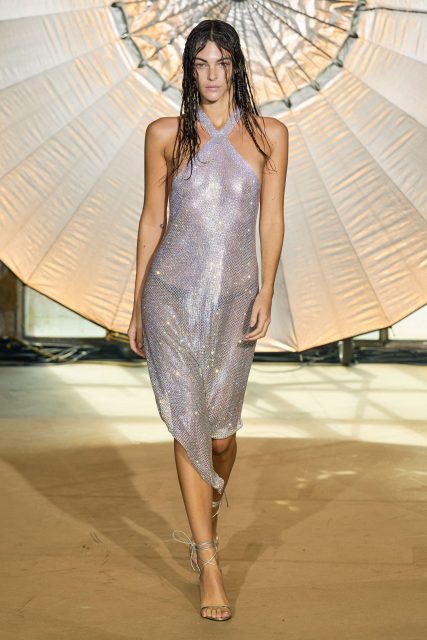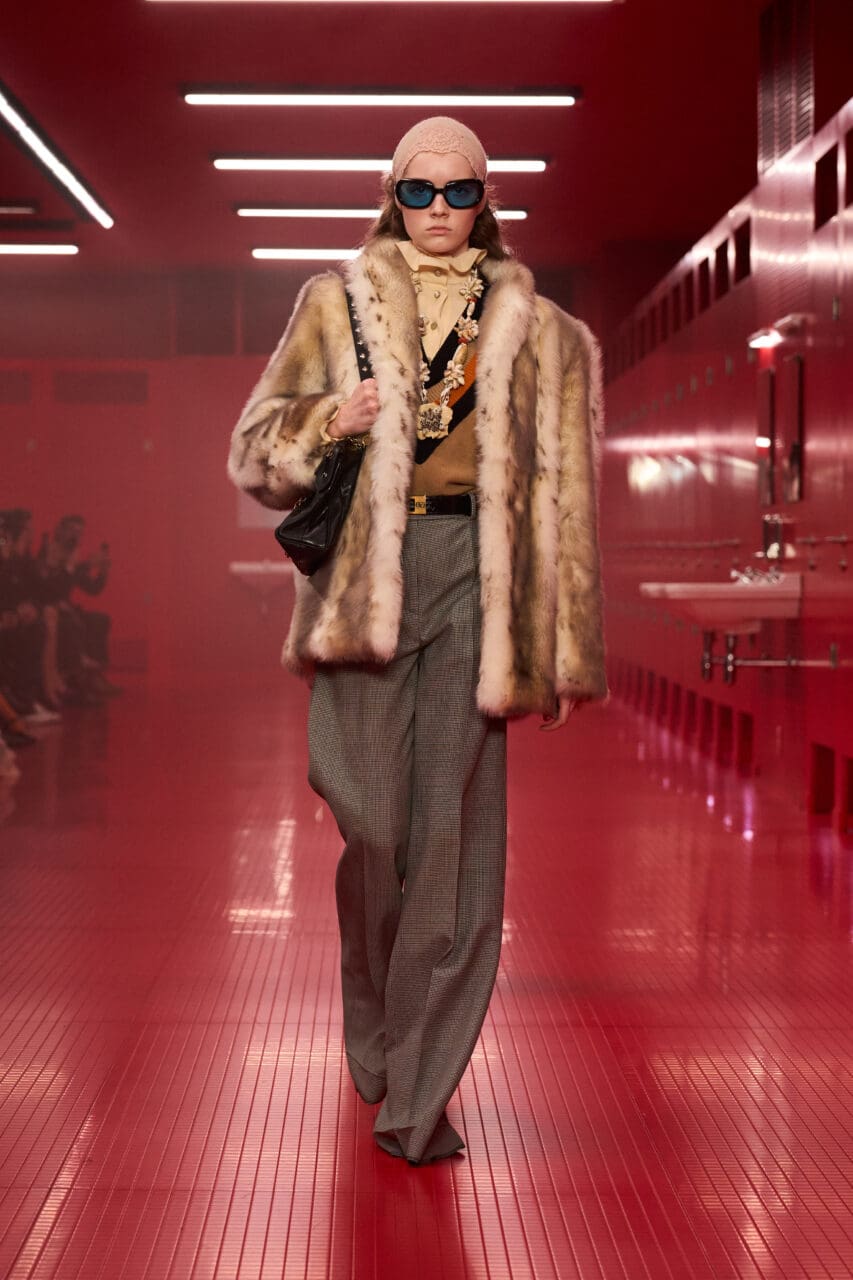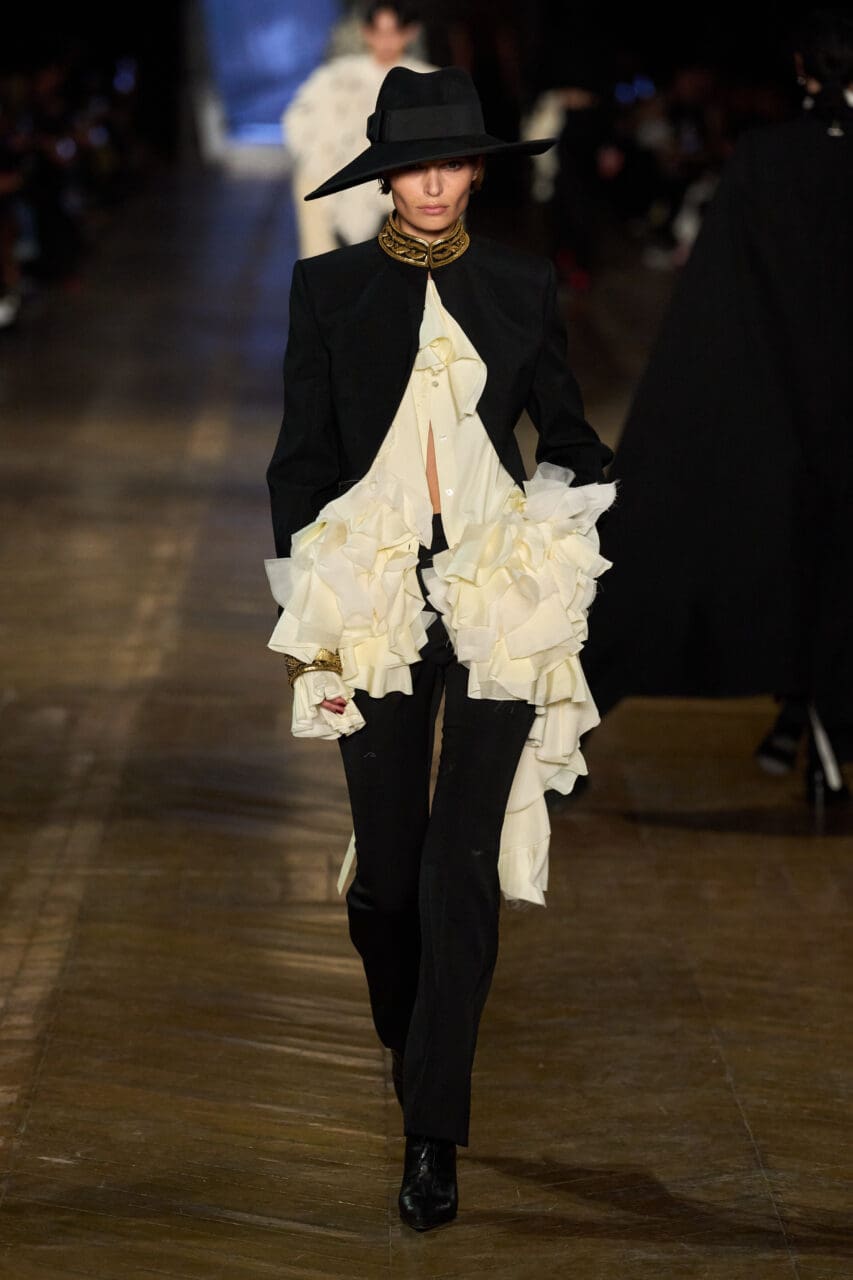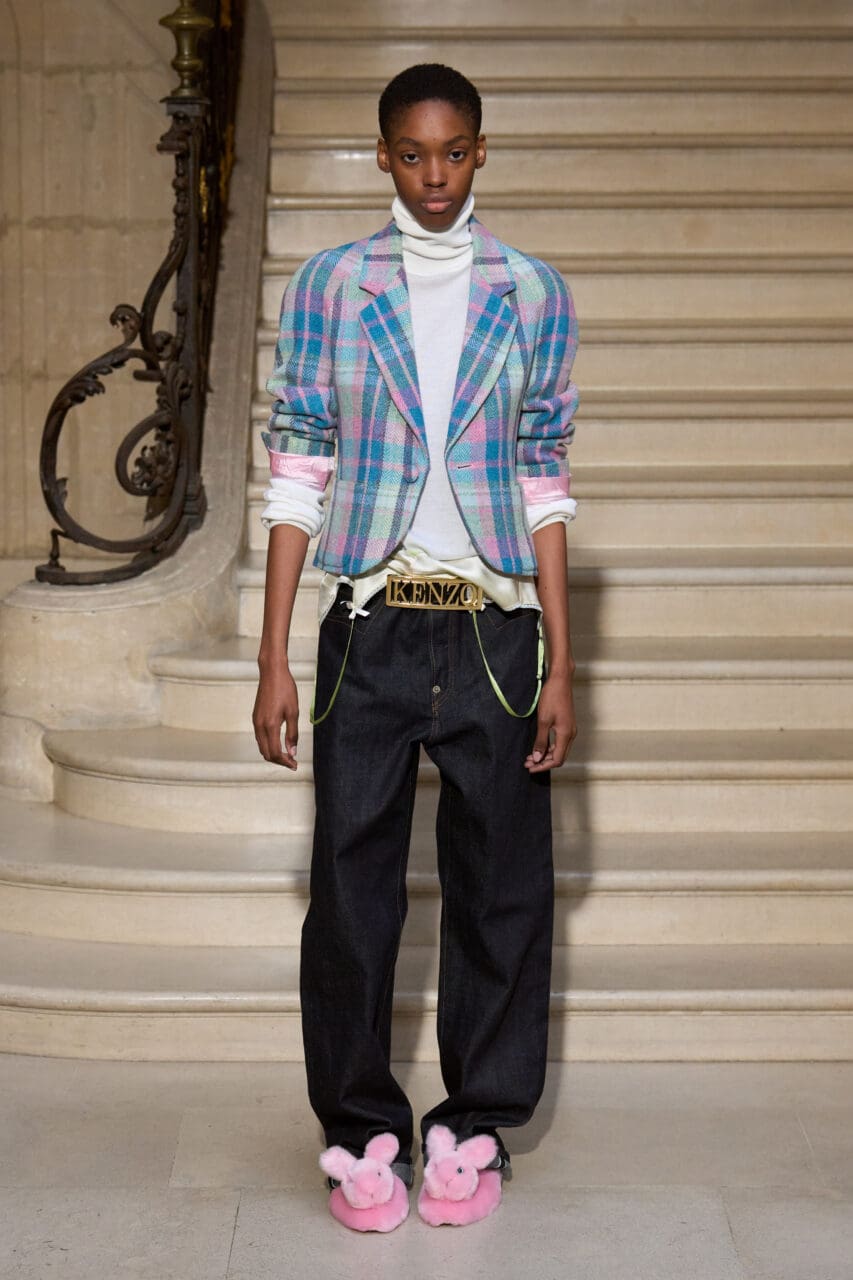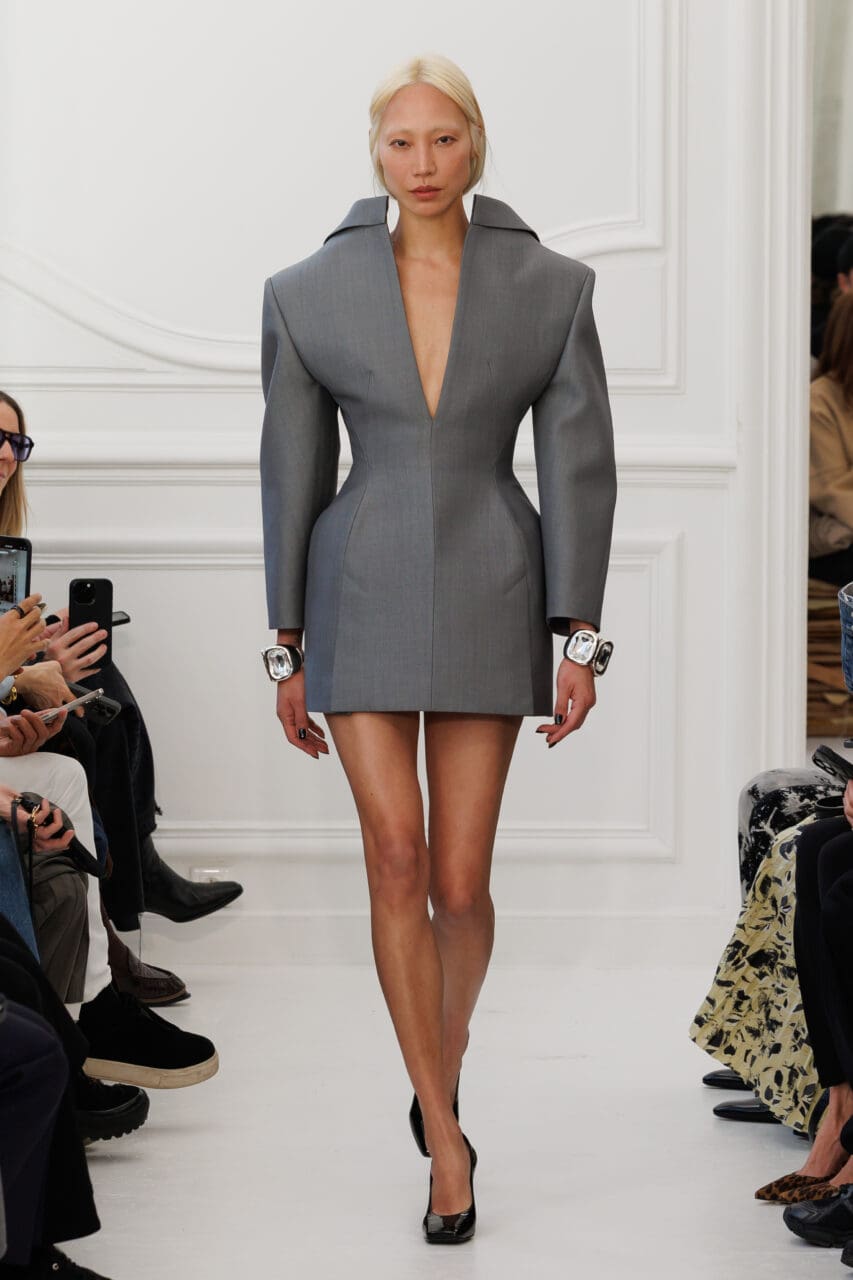Nicolas Ghesquière presented an enchanting Louis Vuitton cruise collection on Isola Bella that combined the ethereal (and aquatic) with motifs of centuries past. Below, Anders Christian Madsen shares five key takeaways from the destination show.
The show took place on Isola Bella
When Nicolas Ghesquière makes wetsuits, Mother Nature answers his call. On the evening of the Louis Vuitton Cruise 2024 show in the Borromean Islands, it was raining so heavily that the designer made the tough – but wise – decision to move his presentation indoors. The show was to take place against the sunset in the hanging gardens of Isola Bella off the shore of Lake Maggiore, home to a palatial 17th-century palazzo. Instead, the pictures you see here were shot in the afternoon (when it was perfectly sunny) while guests – including Oprah Winfrey, Cate Blanchett, and Emma Stone – saw it on the backdrop of the literally heavenly painted salons of the Palazzo Borromeo. It didn’t take away from the experience, nor from a water-centric collection that felt more fantastical – more fairytale – than Ghesquière’s signature travels through time.
The cruise was centred around the castles of the Borromeo family
“Surprisingly, Louis Vuitton has never shown in Italy,” Ghesquière said. “I wanted a special place, something new. Also: different architecture, a different context. The paradoxical idea of a botanical cruise really intrigued me.” On the eve of the show, guests from near and far, who stayed in the fabled hotels of Lake Como, dined in Rocca di Angera on the shore of Lake Maggiore – the 13th-century seat of the Borromeo family, which owns the nearby island – while the day of the show was spent cruising Lake Como and lunching in the picturesque Torno, before processing to the floating gardens of Isola Bella. “I had heard amazing stories about it. The very suggestion of the island is a journey, a lake, a palace, gardens… A fabulous destination, with mosaic-covered grottos, statues, a unicorn – the Borromeo family emblem – terraces, an atrium,” Ghesquière mused.
Isola Bella inspired a collection founded in the myths of nature
The lakes of Northern Italy are – and historically were – a place of leisure and beauty. Nothing illustrates that better than the folly of Isola Bella: an out-of-this-world, almost sci-fi-esque creation created solely for the sake of beauty; a fantasy brought to life. (Star Wars was even filmed there.) It triggered a different approach for Ghesquière, who sounded positively swept away by the fairytale woman the island inspired: “It beckons more dreamlike reflections. I see this collection as a tale devoid of nostalgia. A story of anticipation. A kind of archaeology of the future. The mystery of lakes that one imagines might be populated by fantastical creatures,” he said. “A post-modern wyvern, a legendary creature, a kind of freshwater mermaid that lives in rivers, ponds and lakes. A very beautiful, mythical woman.”
It was a wardrobe for time-travelling ballroom divers
Like the Borromean visionaries that dreamed up the floating paradise of Isola Bella, Ghesquière brought his own fantasy to life in a collection that spliced modern and mythical aquatic motifs – divers and mermaids, if you will – with botanical themes, and drew on the majestic parties and wardrobes the island has played host to over the centuries. Dresses, suits and jumpsuits were hybrids of the weather-appropriate scuba material of wetsuits and the couture-like fabrics of the formal wardrobe, expressed in silhouettes that both referenced and transcended the last five centuries: crop tops and flounce miniskirts cut like armour; Renaissance-sleeved tops and ruffled collars; sweeping, regal robes worn over robotic bathing suits, and sculptural tops and skirts that looked as though they were about to metamorphose into enormous flowers.
The show concluded with epic eveningwear
Anyone who’s seen the trailer for the live-action version of The Little Mermaid (which happened to premiere on the night of the Louis Vuitton Cruise show) and heard Ariel’s heart-piercing “ah-ah-ahs” will have been transported back to the fairytales of childhood. The finale of Ghesquière’s show hit the same emotional buttons: a series of blushing, cascading, effervescent ballgowns ruffled like the foam and froth of waves, and rendered in the same pretty pastels as the conches Disney mermaids sleep in. Paired with crown-like headpieces that Ghesquière likened to the horns of fauns – created by an expert atelier in Rome which makes costumes for the Italian cinema and opera – they added an infectious, childlike sense of wonder to the show, which no torrential rain could drown out.
Editor
Anders Christian MadsenCredit
Lead Image: Alessandro Luciano / Gorunway.com